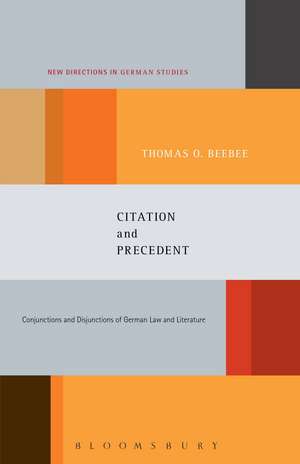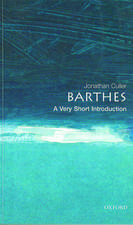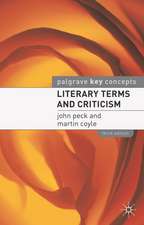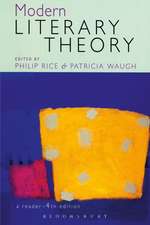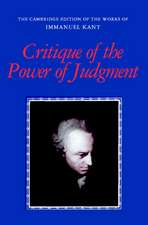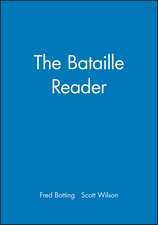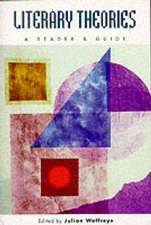Citation and Precedent: Conjunctions and Disjunctions of German Law and Literature: New Directions in German Studies
Autor Professor Thomas Oliver Beebeeen Limba Engleză Paperback – 28 mai 2014
| Toate formatele și edițiile | Preț | Express |
|---|---|---|
| Paperback (1) | 218.47 lei 6-8 săpt. | |
| Bloomsbury Publishing – 28 mai 2014 | 218.47 lei 6-8 săpt. | |
| Hardback (1) | 831.83 lei 6-8 săpt. | |
| Bloomsbury Publishing – 25 ian 2012 | 831.83 lei 6-8 săpt. |
Din seria New Directions in German Studies
- 14%
 Preț: 183.70 lei
Preț: 183.70 lei -
 Preț: 470.91 lei
Preț: 470.91 lei - 8%
 Preț: 145.46 lei
Preț: 145.46 lei - 11%
 Preț: 219.84 lei
Preț: 219.84 lei - 23%
 Preț: 190.50 lei
Preț: 190.50 lei -
 Preț: 169.04 lei
Preț: 169.04 lei -
 Preț: 217.09 lei
Preț: 217.09 lei - 7%
 Preț: 134.49 lei
Preț: 134.49 lei - 14%
 Preț: 183.24 lei
Preț: 183.24 lei -
 Preț: 217.62 lei
Preț: 217.62 lei - 21%
 Preț: 214.78 lei
Preț: 214.78 lei - 30%
 Preț: 718.85 lei
Preț: 718.85 lei - 22%
 Preț: 237.93 lei
Preț: 237.93 lei - 22%
 Preț: 225.77 lei
Preț: 225.77 lei - 22%
 Preț: 256.77 lei
Preț: 256.77 lei - 22%
 Preț: 225.41 lei
Preț: 225.41 lei - 23%
 Preț: 222.46 lei
Preț: 222.46 lei - 30%
 Preț: 714.12 lei
Preț: 714.12 lei - 30%
 Preț: 568.22 lei
Preț: 568.22 lei - 21%
 Preț: 218.36 lei
Preț: 218.36 lei - 13%
 Preț: 186.35 lei
Preț: 186.35 lei - 30%
 Preț: 569.94 lei
Preț: 569.94 lei - 21%
 Preț: 218.83 lei
Preț: 218.83 lei - 22%
 Preț: 256.20 lei
Preț: 256.20 lei - 14%
 Preț: 190.06 lei
Preț: 190.06 lei - 23%
 Preț: 197.14 lei
Preț: 197.14 lei - 13%
 Preț: 255.11 lei
Preț: 255.11 lei - 22%
 Preț: 226.79 lei
Preț: 226.79 lei - 30%
 Preț: 568.14 lei
Preț: 568.14 lei - 14%
 Preț: 191.85 lei
Preț: 191.85 lei -
 Preț: 183.24 lei
Preț: 183.24 lei -
 Preț: 231.81 lei
Preț: 231.81 lei - 22%
 Preț: 230.24 lei
Preț: 230.24 lei
Preț: 218.47 lei
Preț vechi: 245.75 lei
-11% Nou
Puncte Express: 328
Preț estimativ în valută:
41.81€ • 45.40$ • 35.12£
41.81€ • 45.40$ • 35.12£
Carte tipărită la comandă
Livrare economică 22 aprilie-06 mai
Preluare comenzi: 021 569.72.76
Specificații
ISBN-13: 9781628921243
ISBN-10: 1628921242
Pagini: 296
Dimensiuni: 140 x 216 x 23 mm
Greutate: 0.39 kg
Editura: Bloomsbury Publishing
Colecția Bloomsbury Academic
Seria New Directions in German Studies
Locul publicării:New York, United States
ISBN-10: 1628921242
Pagini: 296
Dimensiuni: 140 x 216 x 23 mm
Greutate: 0.39 kg
Editura: Bloomsbury Publishing
Colecția Bloomsbury Academic
Seria New Directions in German Studies
Locul publicării:New York, United States
Caracteristici
Engages important cultural theorists, such as Luhmann, Habermas, Benjamin, and Carl Schmitt.
Notă biografică
Thomas O. Beebee is Distinguished Professor of Comparative Literature and German, Penn State University, USA. He is the author of Millennial Literatures of the Americas, 1492-2002 (2008), Epistolary Fiction in Europe (1999), The Ideology of Genre: A Comparative Study of Generic Instability (1994) and Clarissa on the Continent: Translation and Seduction (1990). He is the Editor of the journal Comparative Literature Studies.
Cuprins
Acknowledgments1.1 Introduction 1.2 Subsystem or Public Sphere? 2.1 In Search of the Invisible Precedent: Grimm Writes to Savigny 2.2 Kant, Codification, and Goethe's Elective Affinities 3.1 A Recursive Process: Kafka's Law - and Ours 3.2 Walter Benjamin reads the Weimar Constitution 3.3 From Schiller to Schund: Zensur and the Canonization of Literature 3.4 German Literature Fights for its Rights: A Thick Description of an Incident of Weimar Literary Culture 4.1 Carl Schmitt and/as Benito Cereno 4.2 Citation as Second-Order Observation: Peter Weiss's The InvestigationConclusionWorks Cited
Recenzii
"Kafka, Benjamin, Schmitt-that German-speaking writers and thinkers of the early 20th century are obsessed with 'the law' is well-known. Citation and Precedent widens our historical and conceptual perspective. Beebee reconstructs not only a dense intertextual network of law, literature, and philosophy that pervades German culture from Kant to Peter Weiss; he also shows that these crossings and borrowings are driven by the dream, or the nightmare, of a 'culture' capable of uniting law and life, codified norm and everyday reality. This is an excellent book." -- Andreas Gailus, Associate Professor of German, University of Michigan, USA
"Is systems theory (Luhmann) an effective tool for investigating the relationship of law and literature? In a series of subtle and imaginative readings of German-language texts and cultural history, Beebee shows how the autonomy and differentiation of systems allows for registering levels of law's and literature's mutual observation that more common theories of representation fail to capture. Especially fascinating are his analyses of Carl Schmitt's self-identification with Melville's Benito Cereno and Peter Weiss's play on the 1960s' Auschwitz trials." -- William Rasch, Professor, Department of Germanic Studies, Indiana University, USA
In the German tradition, law sometimes looks to literature to convey its decisions, and vice versa. Goethe, Hoffmann, the Grimms, Kleist, Kafka, and others were trained as legal scholars. Beebee (Penn State) explores interactions going beyond "mirror of justice" modality--a topos of literary texts from marriage, economics, and so on--to explain the interaction between law and literature in the German language. In the case of Herder, Hegel, Fichte, and the Grimms, historical and literary examples reveal how laws and legal systems conform to the standards of the people they regulate. By contrast, Goethe treads the legal paths with literary finesse, accommodating, for example, Kant's philosophy of marriage. Kafka, entangled by bureaucratic coded law, forces truth while withholding it in the juridical sense. In the Weimar period, critics like Rudolf Borchardt and Ernst Robert Curtius struggled to differentiate literature from party-political activity. Beebee considers the double and triple meanings of certain German words: Schuld (guilt/debts), Prozess (trial/process), Gewalt (power/ violence), Zensur (censorship/academic grades). Peter Weiss draws paradox out of Werte (values/valuables) in Investigation, a play about the Holocaust, creating a script for trials for which there is no official transcript and thus coupling literature with the legal world. Fine bibliography and index. Summing Up: Recommended. Upper-division undergraduates and above. --L. J. Rippley, St. Olaf College
"Is systems theory (Luhmann) an effective tool for investigating the relationship of law and literature? In a series of subtle and imaginative readings of German-language texts and cultural history, Beebee shows how the autonomy and differentiation of systems allows for registering levels of law's and literature's mutual observation that more common theories of representation fail to capture. Especially fascinating are his analyses of Carl Schmitt's self-identification with Melville's Benito Cereno and Peter Weiss's play on the 1960s' Auschwitz trials." -- William Rasch, Professor, Department of Germanic Studies, Indiana University, USA
In the German tradition, law sometimes looks to literature to convey its decisions, and vice versa. Goethe, Hoffmann, the Grimms, Kleist, Kafka, and others were trained as legal scholars. Beebee (Penn State) explores interactions going beyond "mirror of justice" modality--a topos of literary texts from marriage, economics, and so on--to explain the interaction between law and literature in the German language. In the case of Herder, Hegel, Fichte, and the Grimms, historical and literary examples reveal how laws and legal systems conform to the standards of the people they regulate. By contrast, Goethe treads the legal paths with literary finesse, accommodating, for example, Kant's philosophy of marriage. Kafka, entangled by bureaucratic coded law, forces truth while withholding it in the juridical sense. In the Weimar period, critics like Rudolf Borchardt and Ernst Robert Curtius struggled to differentiate literature from party-political activity. Beebee considers the double and triple meanings of certain German words: Schuld (guilt/debts), Prozess (trial/process), Gewalt (power/ violence), Zensur (censorship/academic grades). Peter Weiss draws paradox out of Werte (values/valuables) in Investigation, a play about the Holocaust, creating a script for trials for which there is no official transcript and thus coupling literature with the legal world. Fine bibliography and index. Summing Up: Recommended. Upper-division undergraduates and above. --L. J. Rippley, St. Olaf College
